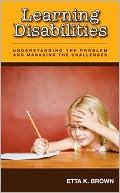The term special education broadly defines educational programs designed to serve children with mental, physical, emotional, and behavioral disabilities.
Special education is largely defined by the federal Individuals with Disabilities Education Act, or the IDEA, which guarantees a “free, appropriate public education” to children with disabilities and mandates that, to the “maximum extent appropriate,” they be educated with their non-disabled peers in the “least restrictive environment.”
The term refers to all the “special” individualized help required by those children who do not learn well with traditional teaching methods. If the child’s problem is identified early enough, they benefit greatly from the special services provided to help them achieve.
How Services Are To Be Delivered
These special services should be provided to the child in his regular classroom whenever possible. The child should not be removed from the classroom for services unless they cannot be provided in the regular classroom. When special individualized services are required, the child may leave the classroom to receive then, and return to the classroom.
Interventions outside the classroom may be provided by a number of professional service providers including a special education teacher, a speech and language therapist, an occupational therapist, or other professional as needed.
These services are the ingredients that determine the appropriateness of your child’s education. All interactions with the child are coordinated with the classroom teacher, and the parent is informed at all stages of the process.
The Process of Special Education
The process begins with a referral from the classroom teacher to a team comprised of the child’s teacher, the parent, the building administrator and the school psychologist. Others may attend by invitation from the parent.
At this meeting, the team looks at the child’s behavior, his achievement, and any other information which the team deems necessary to determine whether he should be referred for an assessment and whether he would benefit from special education services.
If the team decides an assessment would provide needed information, the parent is asked to give permission for the assessment by signing an assessment plan. The assessment plan outlines the nature of the assessment the child is to receive including all the tests that will be administered; what they measure and which professional will administer them. When the assessment is completed, the team meets again to review the results.
The Individualized Education Plan (IEP)
If the child is eligible, the team will design an individualized education plan outlining goals and objectives for the child’s education. If the parents agree to the plan, their signature and the signature of all the team members obligates the school district to provide the child with all the services on the plan.
The IEP is reviewed every year, and the child receives a complete reevaluation every three years, and when indicated, the plan is modified, or completely redesigned.
Subscribe to:
Post Comments (Atom)

No comments:
Post a Comment